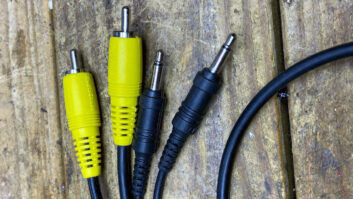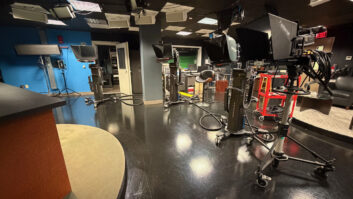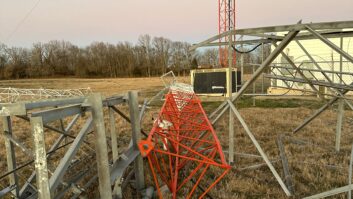WASHINGTON��Broadcasters will set their final collective asking price for 108 MHz of TV spectrum on Thursday, and bidding by wireless providers for 80 MHz of that spectrum will start four days later, on Monday, Dec. 5.
The Federal Communications Commission today announced that bidding in the third-stage reverse auction, in which broadcasters set their sale price for 108 MHz, will conclude with five individual rounds scheduled for Dec. 1.�
�Under the current bidding schedule and decrement, the base clock price will reach $0 in round 52, which will be held Thursday, Dec. 1,� the commission�s�auction dashboard�states. �As a reminder, it is possible for the auction to take up to two additional bidding rounds beyond the point at which the base clock price has reached $0 if the final bidding status has not yet been determined for any VHF stations.�
The schedule through Wednesday will include three, one-hour rounds per day. On Thursday, one-hour rounds will commence at 10 a.m. and 1 p.m., with three half-hour rounds beginning at 3, 4 and 5 p.m., all times Eastern.�
The commission said it would announce the initial bidding schedule for the third-stage forward auction the day after reverse auction bidding ends, which would be Friday. It recommended that forward auction participants be prepared for bidding to begin Monday.�
The auction stages represent the number of attempts made to close the auction at an incrementally reduced amount of spectrum, or �clearing target,� in FCC parlance. Each clearing target represents the total amount of TV spectrum to be cleared, but not sold, because some must be reserved for interference buffer zones and guard bands. The remaining spectrum is sold in paired, 5 MHz blocks (10 MHz per pair).
Two conditions, or �components� must be met for the auction to close.�
The first component involves meeting a benchmark price of $15.9 billion, derived by calculating the number of people served by 70 MHz of unimpaired spectrum covering the top 40 partial economic areas�wireless geographic units�at $1.25 per MHz/pop. The benchmark was reached in both the first and second stage of the incentive auction.
The second component requires purchase bids to cover the sale price of the spectrum plus the cost of auction itself and another $1.75 billion to relocate broadcasters. It has not been met.�
Buyers and sellers were $63.5 billion apart when the first stage concluded Aug. 30 at a 126 MHz clearing target, with broadcasters asking $86 billion and wireless bidders offering $22.5 billion for the 100 MHz of usable spectrum at that clearing target.
Buyers and sellers were $35 billion apart when the second stage concluded Oct. 19 following a single round of bidding in the forward auction. Broadcasters asked $56.5 billion for the second-stage clearing target of 114 MHz. Wireless providers offered $21.5 billion for the resulting 90 MHz of spectrum.
The third and current stage commenced Nov. 1 with broadcasters participating in a reverse auction now set to conclude Thursday.�
�
A version of this article originally appeared on the website of Radio magazine sister publication TV Technology.
�
�







